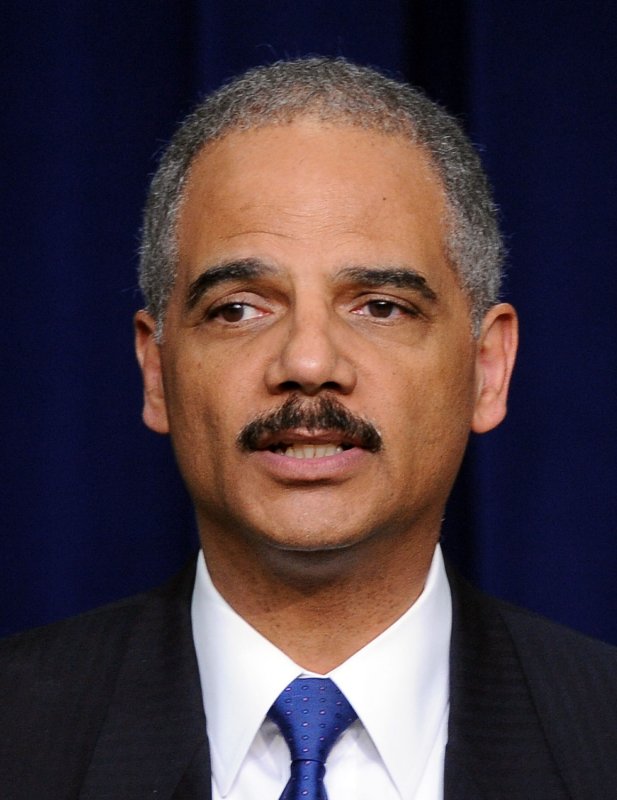Attorney General Eric Holder speaks at an event in Washington May 16, 2011. UPI/Roger L. Wollenberg |
License Photo
WASHINGTON, March 23 (UPI) -- The Obama administration eased rules on how counter-terrorism analysts may use data collected about Americans for reasons other than national security threats.
Attorney General Eric Holder signed guidelines Thursday that, among other things, expand from 180 days to five years the time the National Counterterrorism Center may keep private information about Americans not suspected of having ties to terrorism, The New York Times reported.
The guidelines also will allow the center to make more copies of entire databases and study them by using complex algorithms to search for patterns indicative of a threat, intelligence officials said.
The officials told the Times the new regulations were the outgrowth of reviews undertaken after the failure to connect intelligence information about Umar Farouk Abdulmutallab, the so-called "underwear bomber," before his Dec. 25, 2009, attempt to detonate a bomb aboard an airplane as it approached Detroit.
The changes are meant to help analysts more quickly identify terrorism suspects, officials said.
They also triggered civil liberty concerns by privacy advocates.
"We're all in the dark, and for all we know it could be a rerun of Total Information Awareness, which would have allowed the government to make a computerized database of everything on everybody," said Kate Martin, director of the Center for National Security Studies.
Total Information Awareness, proposed during President George W. Bush's administration, would have combined archives of electronic records to allow analysts to search for patterns of a hidden terrorist cell.
National security officials said, however, analysts could access the information under the old rules and that safeguards were in place to protect against abuse, the Times said.
"There is a genuine operational need to try to get us into a position where we can make the maximum use of the information the government already has to protect people," said Robert S. Litt, the general counsel in the office of the Director of National Intelligence, which oversees the National Counterterrorism Center.
"We have to manage to do that in a way that provides protection to people's civil liberties and privacy. And I really think this has been a good-faith and reasonably successful effort to do that."















